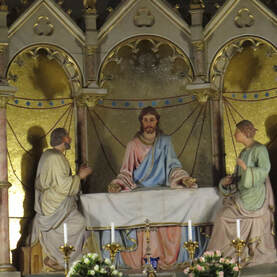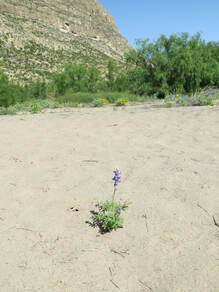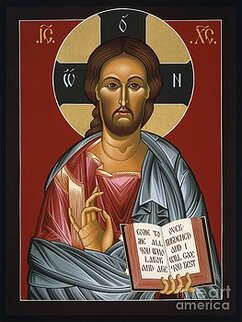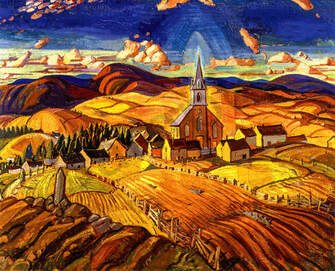 A few years ago my husband and I were fortunate to be able to make a pilgrimage to the Holy Land. The entire journey through Israel and Palestine was filled with blessings and many insights into the Scriptures. The last site we visited was Emmaus, a small town to which most pilgrimages do not go because now it is a place which is hostile to Christianity; therefore, it was a gift to be able to go there. We hear about this small town during the Easter season because Jesus appeared (at first not recognized) to two disciples who were discouraged and on the road from Jerusalem to Emmaus. As they walked, not only did the Risen Jesus explain how the prophecies were fulfilled, but He did something that changed everything for them: at dinner He blessed and broke the bread, at which point they recognized Him and He vanished. (Luke 24:13-35) They were so excited, literally on fire with the Eucharist, that they ran all the way back to Jerusalem, no small feat since these places are not really close together.* After hearing this passage again, I realized that we know next to nothing about these two disciples, except the name of one of them, Cleopas. In fact, we do not even know if the second one was a man or a woman. They were ‘little,’ unnoticed but for their encounter, never to be mentioned again. And yet, both the disciples and Emmaus have an indelible, fixed place in our awareness because of what took place there: the Risen Jesus made manifest in the bread blessed, broken, and shared. The freedom which arose within the two disciples’ was immense. They let go of their discouragement and fear, becoming immersed in the joy of encountering the Risen Christ.  If we are honest, we all like to be noticed in some way even if we are the most introverted or shy of people. Everyone wants to know that they have caught someone’s attention, to be loved, to have made a difference, or to get credit for something we may have accomplished. Unfortunately for some, this desire can become a bit too strong, resulting in either self-centeredness or the sin of pride which overpowers everything we do. That pride can lead to envy and other sinful behaviors even in the most prayerful of people because sometimes it can be so subtle that we are not aware of this motivation until we have our eyes opened to it. If another person points this out to us, it can be quite painful, but it can also be a bitter pill to swallow if we realize it during prayer; that is, if it is the Lord who reveals this to us. However, it is in that revelation that freedom begins. Remember that Jesus said the truth will set us free? Well, at first truth can make us rather uncomfortable, but if we accept the graces offered by the Lord to let go of our sinful tendency, we will come to great freedom and joy. We will discover that there is great freedom in being little, unselfconscious, and even ‘under-credited’ by the world. When that happens and we accept it with joy, we are truly free, because it is in that freedom that holiness grows, noticed, if you will, by the One whose judgment is the only one that counts: our merciful God. In the story of the two disciples who traveled to Emmaus with Jesus there are two important aspects to consider. The first is that upon reflection, they realized their hearts were burning within them during the entire time they were walking with Jesus, even though they were quite discouraged because they had thought that perhaps He had not ‘been the one.’ This teaches us to trust what is happening within our own hearts. If we are experiencing a true movement of the Holy Spirit or the presence of Jesus with us, then we ought to meet Him in our prayer to talk about it with Him. Just as with the two disciples, He will reveal what we need. The second is that they recognized Jesus when He blessed and broke the bread; that is, when He gave them Himself in the Eucharist.** Of course, we have access to Jesus in the Sacraments daily. Thus, every time we experience the Eucharist we are in fact having the same encounter with Jesus that they did! And I might add that when we go to Reconciliation we are also having an intimate experience of Jesus since it is then that we encounter His Divine Mercy and receive grace to free us from our sins. Therefore, we know that through pouring out our fear and brokenness to the Lord we find true freedom to grow in holiness because in this letting go, we become comfortable with ourselves as we are, no longer needing recognition from anyone but the One we love.  Finally, the story of the two disciples teaches us that God’s mercy brings the joy which heals all pain. In other words, God’s mercy brings the strength to endure any suffering we might have, and in knowing His closeness, we find great joy. Freedom from fear, discouragement, and from the need to be noticed with the rewards that come from the world, brings joy and peace; the wonderful truth is that God offers it through His death and Resurrection. It takes trust to let go in this way, and therefore our prayer needs to always be: “Jesus, I trust in you!”  May we embrace Divine Mercy, allowing the Lord to transform our brokenness and desire to be huge in the eyes of the world into an acceptance of being little so that He can be big! May we grow in freedom to be who God created us to be, that we might give Him great glory! And may we find the joy that heals all pain in the Heart of the Risen Lord! Alleluia! Peace! ©Michele L. Catanese * Fun facts: The town of Emmaus, by the route they would have taken, is a little less than 7 miles (11 kilometers) from Jerusalem. That should make it a bit clearer as to just how empowered the 2 disciples were as a result of everything that had transpired. To have run all the way back after taking all day to walk it is rather amazing. The Church that is in Emmaus/El-Qubeibeh today is called the Basilica of the Manifestation of the Risen Christ to Clopas and Simon, indeed a mouthful! (Traditionally it was said that the second disciple was Simon, but nowhere is that mentioned directly in the Scriptures.) ** Jesus disappeared as soon as He blessed, broke, and shared the bread because it had become His Body, and therefore He only needed to be present in one form. He was equally present in the bread, now Eucharist, as He had been when He had been standing before them. Note: Many great saints made themselves little as they let go of their desire to do anything but love God and do His will. The most obvious is St. Thérèse of Lisieux, the Little Flower, of whom I have written many times. I believe the desire to give everything over to the Lord in total trust so as to become little in order for Him to be more known is a hallmark of holiness. Another of my favorites, among so many, is St. Benedict Joseph Labrè whom I have written about twice. Since I will be taking a ‘blog holiday’ for a few weeks, there will be no new entry on May 16. Therefore, my recommendation is that in two weeks, you might read an Easter entry I wrote in 2016 in which St. Benedict Joseph was mentioned along with a couple of other saints, a full paragraph devoted to him. https://www.catanesesd.com/micheles-blog/who-will-tell-of-his-posterity If you would like more information on St. Benedict Joseph Labrè you can click here: https://catholicsaints.info/saints-of-the-day-benedict-joseph-labre/ Images: 1. My photo, sculpture behind the altar in the Church in Emmaus, Palestine. 2. My photo, taken in Big Bend National Park. This little flower stood out, obviously. 3. Icon, the two disciples with Jesus on the road to Emmaus and then at table. 4. Icon, Christ All Merciful by Fr. William Hart McNichols. You can find this at fineartamerica.com/featured/christ-all-merciful-022-william-hart-mcnichols.html 5. Painting, Quebec Village (Saint-Hilarion) by Arthur Lismer (1926) You can find more on this painting at https://agnes.queensu.ca/explore/collections/object/quebec-village-saint-hilarion/ In compliance with GDPR rules, I wish to make it clear that I do not gather any information on any of my readers at any time. Comments are closed.
|
Heart Speaks to Heart
|

 RSS Feed
RSS Feed

